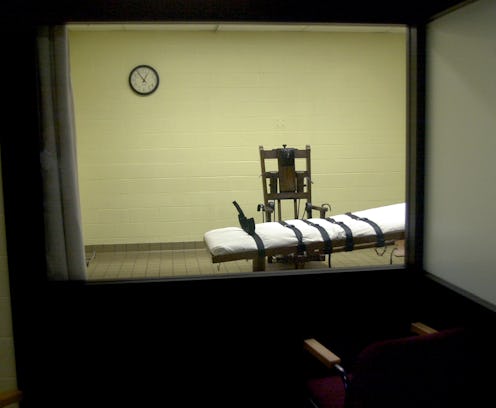News
Texas Executions Halted Til State Discloses Drugs
Texas, the state that executed 40 percent of the 39 people who were sentenced to death in the United States last year, has been ordered by a judge to hold off on executing two more. Tommy Lynn Sells and Ramiro Hernandez Llanas, two convicted murderers, had sued the state for a lack of information about the drugs that will be used to put the men to death. This resulted in a federal judge's decision to postpone their executions.
The state hadn't disclosed the specific cocktail of drugs that would be used for the men's executions. Their lawyers argued that certain lethal injection drugs may be categorized as unconstitutional, as they cause extreme pain and are therefore forms of cruel and unusual punishment. The judge ruled that the state can't use the drugs until they disclose what they are.
Earlier this year, Dennis McGuire's gruesome execution in Ohio brought a chorus of critics upon the state's lethal drug cocktail, which had been previously untested. McGuire's execution took 26 minutes to complete, and left him gasping for breath in agony. The anaesthesiologist who warned of this possibility said he was "horrified and aghast" at the "unnecessary" suffering McGuire was forced to undergo.
Many drugs used in executions are obtained from shady sources. Some drug companies refuse to continue providing the necessary chemicals once their names are released, because they receive threats. Other pharmaceutical companies seem to balk simply at the thought of their products being used to put people to death. Lundbeck, the Danish company that was a longtime producer of one of the most popular drugs used for lethal injections, announced in July 2011 that it would no longer sell the drug for the purpose of executions.
All this has created a distinct supply shortage for the necessary medications, and as such, some correctional have been forced to turn to non-state regulated sources.
Inmates like Sells and Llanas are now demanding to know the source of the drugs used to end their lives. And Texas has now agreed that these prisoners have the right to this information. Similar decisions have been made in Oklahoma, where a judge recently ruled that it was unconstitutional for states to hide where they acquired their execution drugs. Today, nearly 12 states have similar provisions that allow for the sources of their chemicals to be kept hidden, but it seems that the time for secrecy is drawing to a close.
While this doesn't necessarily suggest that pro-death penalty states like Texas are well on their way to outlawing executions, it seems that they are, at the very least, attempting to make the process more humane.
